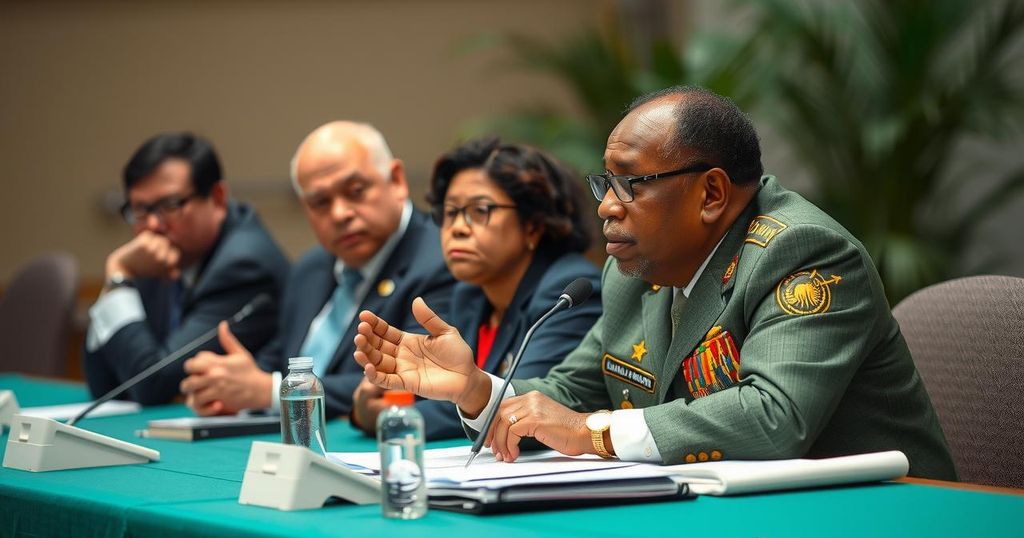Papua New Guinea’s Prime Minister vowed to return to UN climate meetings after boycotting this year’s summit. He urged for prioritization of forest conservation in climate discussions, emphasizing its significance in combating climate change. PNG plans to participate in COP30 next year in Brazil and supports the Australian bid for COP31 in 2026, contingent on the prominence of forestry in talks.
James Marape, the Prime Minister of Papua New Guinea, announced on Tuesday the country’s intention to rejoin United Nations climate summits after their boycott of this year’s meetings in Azerbaijan, which were criticized as unproductive. The Prime Minister emphasized that the focus should be on the conservation of forests during these discussions, recognizing the importance of forestry in combating climate change. PNG is committed to participating in the COP30 summit scheduled for the following year in Brazil and supports an Australian bid to co-host COP31 in 2026, provided that forest management is prioritized in the agenda. Papua New Guinea’s vast rainforest, known as one of the “lungs of the Earth,” is critical for global carbon absorption. Despite being one of the most vulnerable nations to climate impacts, PNG seeks to advocate for compensation from high carbon-emitting countries to support their environmental efforts.
The decision to boycott the UN climate summit stemmed from dissatisfaction with the treatment of forest business owners during the event. With Australia being a prominent coal and gas exporter, the dynamics of the climate negotiations reflect a broader struggle in addressing the pressing challenges of climate change in the Pacific region. The future of Australia’s COP31 hosting bid remains uncertain amid rival proposals from Turkey, prolonging the selection process.
Papua New Guinea is home to one of the largest expanses of rainforest in the world, recognized for its critical role in absorbing carbon dioxide and thus mitigating climate change. The country has faced significant climate impacts, given its geographical vulnerability and economic challenges. By emphasizing forest conservation at international climate talks, PNG aims to elevate the importance of sustainable management of its natural resources. The upcoming COP30 summit in Brazil highlights the need for increased global cooperation and accountability in addressing environmental issues.
In summary, Prime Minister James Marape’s announcement of Papua New Guinea’s return to UN climate talks underscores the nation’s commitment to advocating for forest conservation as a priority in global climate discussions. The country’s participation in future summits aims to ensure that the voices of those most affected by climate change are heard, particularly regarding compensation from major polluters. As the landscape of climate negotiations continues to evolve, PNG’s focus on sustainable resource management stands out as a critical component of the global effort against climate change.
Original Source: www.france24.com






